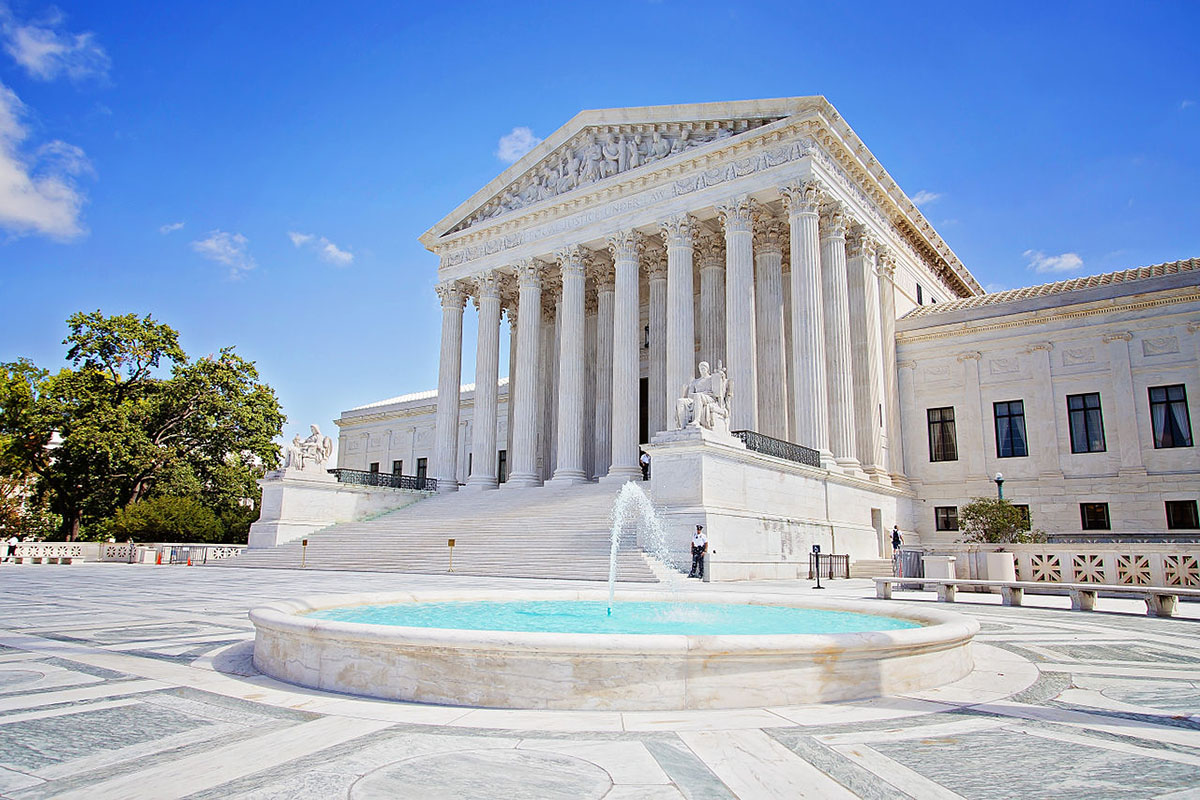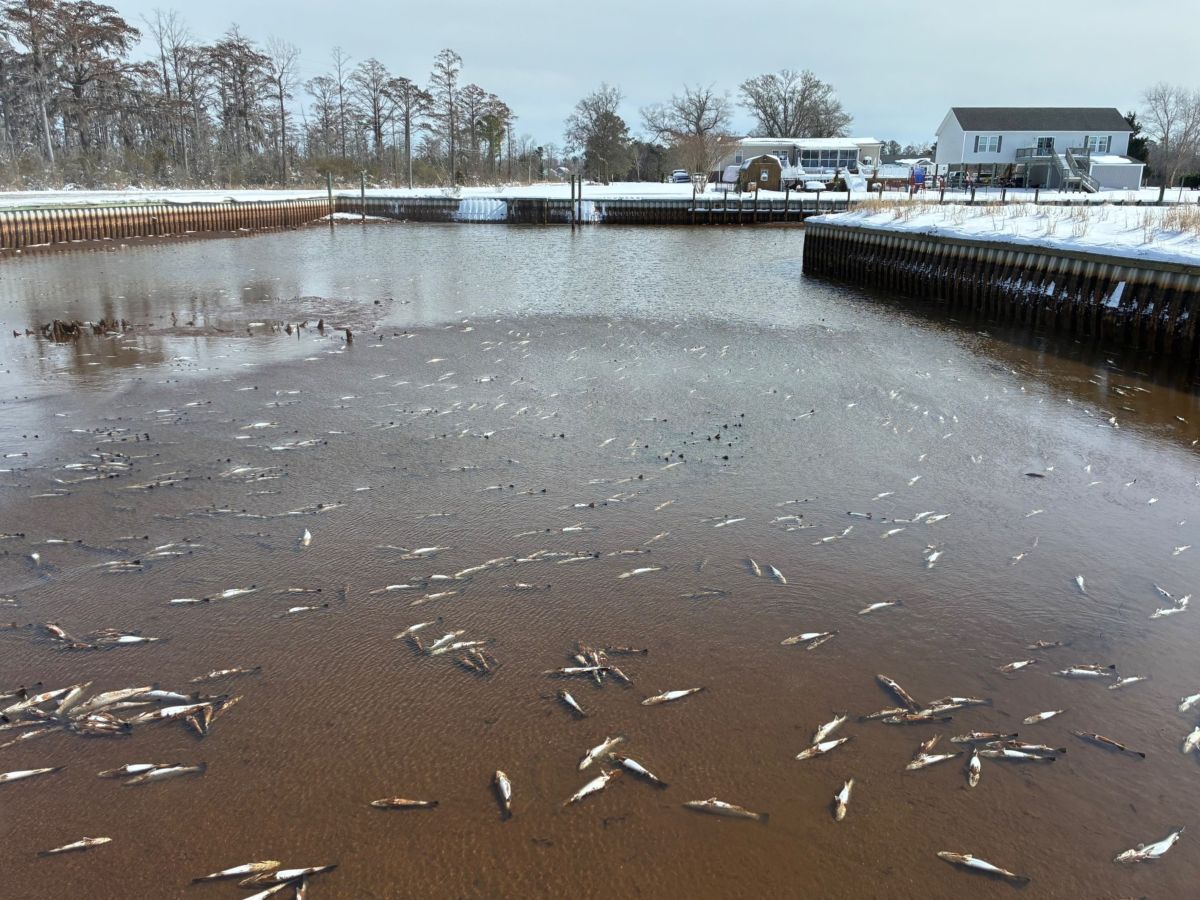
The U.S. Supreme Court’s recent decision limiting the Environmental Protection Agency’s authority to address climate change will not stop North Carolina’s law that requires power-generating facilities to cut carbon dioxide emissions.
But the highest court’s ruling has broader national implications that will be felt most certainly in the Tar Heel State, environmental law experts say.
Supporter Spotlight
In a 6 to 3 ruling last month in the case of West Virginia v. Environmental Protection Agency, the court found Congress did not give the agency authority to cap carbon dioxide, or CO2, emissions to the point that it would force electric utilities to shut down coal-fired power plants and move to renewable energy alternatives, including wind and solar.
The authority that the ruling stripped from EPA was granted to the North Carolina Utilities Commission last year under House Bill 951.
The measure, which Gov. Roy Cooper signed into law in October 2021, requires the North Carolina Utilities Commission “take all reasonable steps” to reduce CO2 emissions emitted in the state from electricity-generating facilities owned or operated by electric public utilities from 2005 levels by 2030 and achieve carbon neutrality by 2050.
The law allows the commission, at a minimum, to consider power generation, transmission distribution, grid modernization, storage energy efficiency measures and technology breakthroughs to achieve compliance.
The legislation gives the commission a wide variety of ways to achieve emissions reductions, explained Ryke Longest, clinical professor of law at Duke University School of Law and co-director of the Environmental Law and Policy Clinic.
Supporter Spotlight

“That section of that bill is doing a lot of work that was objected to by the majority of the Supreme Court opinion of West Virginia versus EPA,” he said. “That includes things like moving from coal fire to solar and saying that you’re going to have to retire some coal plants and you’re going to have to increase solar. That’s all authorized under this law.”
The commission has until Dec. 31 to develop a plan to achieve those CO2-reduction goals.
Don Hornstein, law professor at the University of North Carolina’s School of Law in Chapel Hill, responded in an email saying the Supreme Court’s decision does not affect the EPA’s ability to continue regulating coal- and gas-fired power plant emissions of conventional pollutants.

“These power plants are incredibly dirty, forgetting about GHG (greenhouse gases) altogether,” he wrote.
Hornstein referenced the 2006 public nuisance lawsuit then-N.C. Attorney General Roy Cooper brought against the Tennessee Valley Authority, or TVA, which owned coal-fired power plants in Tennessee, Kentucky and Alabama.
Cooper filed the lawsuit after EPA denied the state’s petition to use the Clean Air Act to force the utility to reduce its air pollution.
A federal judge in North Carolina in 2009 ruled that emissions from three of TVA’s plants in Tennessee and one in Alabama were public nuisances. TVA appealed, and the 4th Circuit Court of Appeals dismissed the lawsuit.
North Carolina asked the U.S. Supreme Court to review the appellate court’s decision, but withdrew the petition for review after TVA agreed to settlement with the EPA in 2011.
The settlement required the company to invest in pollution controls at 11 of its coal-fired plants and $350 million in clean energy and efficiency projects.
“Although that lawsuit was based largely on nuisance law, EPA has huge amounts of power to continue to regulate fossil-fuel plants’ emission of mercury, particulates, other ‘criteria’ and toxic emissions and my understanding is that EPA is already well along that path of forcing such power plants to comply with the existing law, all of which will only increase the price of power from such plants and amplify the cost savings that come from a utility’s switch to solar, wind, and possibly other non-GHG sources of electricity,” Hornstein said. “There’s also nothing in the Court’s opinion that impedes more and more North Carolinians taking a second look at rooftop solar themselves, a round of second-looks that recent changes in NC law has only underscored.”
But the North Carolina law, in Longest’s view, falls short because it does not take into account environmental justice, particularly when it comes to the public participation process.
“The process itself needs to be inclusive and intentionally inclusive and the process the utilities commission uses is none of those things,” he said. “It’s a secure docket that you have to register with the state to have the opportunity to participate on. The orders are written in fairly complicated legalese. You basically have to be a lawyer with some expertise in utilities law even to be able to understand what’s going on, and so I think there is a problem from an environmental justice standpoint, which is that the process itself is not in line with environmental justice in mind.”
In a Jan. 24 letter to the North Carolina Department of Administration, Longest and William Barber, III, a board member of the Department of Environmental Justice and Equity Advisory Board and director of climate and environmental justice at The Climate Reality Project, noted that 17 people had signed up to the docket since it was opened in October 2021.
Those who signed up were either state officials, electricity producers or large industrial users, according to the letter.
“It is absurd and circular logic to solicit people’s feedback about involvement using a subscription-based docket mechanism,” the letter states. “The only folks who got notice of this request for feedback about the process were those few who were already subscribed.”
Longest said he does not believe the letter has had much of an impact in the process.
Whatever plan the Utilities Commission devises to reach the state’s carbon emission reductions goal, the state cannot avoid the effects of climate change on a broader scale.
Hornstein concluded his email stating that, for North Carolina, “at the coast especially, on the front lines of climate change, our continued vulnerability to unprecedented rainfall storms, hurricanes, sea-level rise, will remain, after West Va v. EPA, only as good as the GHG-reduction efforts of OTHER states, no matter how successful we are within our own borders at GHG reductions. That is the real handicap that West Va v EPA imposed on everyone.”







